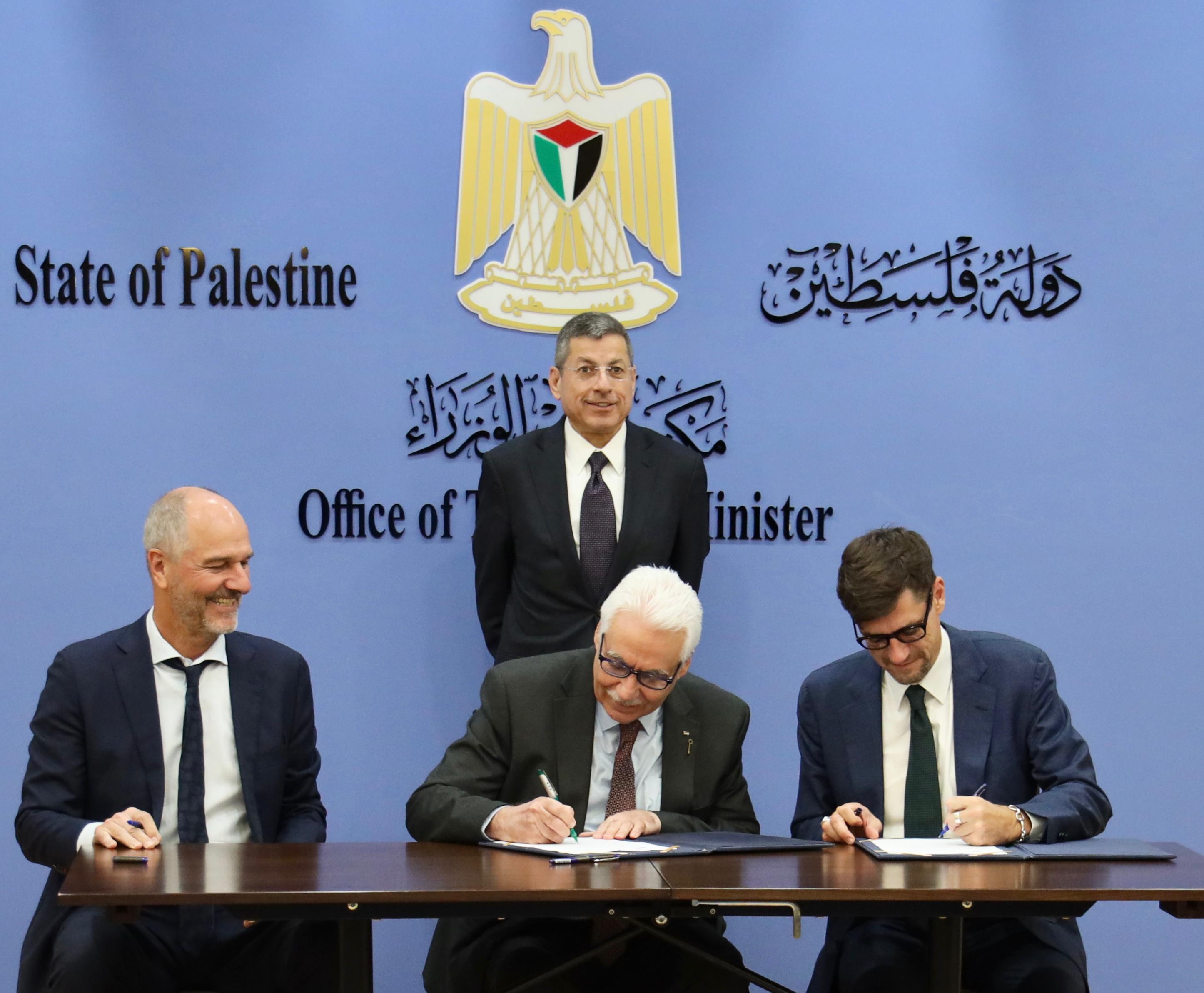RAMALLAH, Wednesday, June 26, 2024 (WAFA) – The Health Ministry and the European Union (EU) and the World Health Organization (WHO) today signed a €2.88 million agreement to strengthen the health financing system and rationalize medical referrals, while protecting the poor and vulnerable patients, according to the Office of the EU Representative to the West Bank and Gaza.
The Office said in a press statement that the agreement was signed at Prime Minister Mohammad Mustafa’s Office in the occupied West Bank city of Ramallah in the presence of Palestinian Minister of Health Majed Abu Ramadan, Minister of Finance Omar al-Bitar, the EU Representative, Alexandre Stutzmann, and Representative for WHO in the occupied Palestinian territory, Richard Peeperkorn.
The agreement, the EU added, aims to support the efforts of Ministry of Health in ensuring equitable access to quality health care services to all Palestinians, amid the challenging financial situation and the consequences of the war in Gaza. The project will be funded from the EU and implemented by the WHO.
The action will address the unsustainable financing of the health sector and the increasing financial burden of the medical referrals. It will foster policy dialogue on rationalizing health expenditures and improving efficiency of the health system. The action will also focus on strengthening the governance of the medical referral system to be more efficient, transparent and fairer to all patients, in addition to strengthening medical specializations at public hospitals to rationalize medical referrals.
The Health Minister Abu Ramadan hailed the signing of the agreement as an important step towards fostering the financing of the health sector as well as towards a brighter and healthier future for the Palestinian people.
Suffering under decades of Israeli occupation and aggression as well as ongoing assaults, Abu Ramadan added, the Palestinian health sector is in a chronic state of emergency and has been facing formidable challenges, particularly that the health system has entirely collapsed in the Gaza Strip following the Israeli genocidal war at a time when the West Bank has been facing a silent war where the health system is on the verge of collapse unless the international community exerts concrete to address it.
Commenting on the impact of the acute financial crisis on the health sector, Abu Ramadan pointed out that such a crisis has had catastrophic impacts on the Ministry’s ability to meet the increasing health needs of the Palestinian people, as debts exceeding 2.7 billion shekels (USD $720 million) has accumulated on the Ministry, with 65% of such debts arising from referrals and 31% from medicines.
“The European Union reiterates once again its commitment to support the Palestinian Authority in improving its public services. For years, the EU has worked towards ensuring access to quality health care services through direct financial support to the Palestinian Authority for the cost of medical referrals to East Jerusalem Hospitals. This new partnership with the World Health Organization will help the Palestinian Authority in its efforts to reform the health system towards a more sustainable, efficient and equitable system" said the European Union Representative, Stutzmann.
“WHO is grateful to the European Union for its longstanding partnership. This project will support the Ministry of Health in implementing its health financing reform priorities, including improving the performance of the referral system. It will also assist in revising the essential health package to guide the investment in health services and strengthen economic analysis within the Ministry of Health to inform future prioritization and planning” said the Representative for WHO in the occupied Palestinian territory, Peeperkorn.
K.F.










